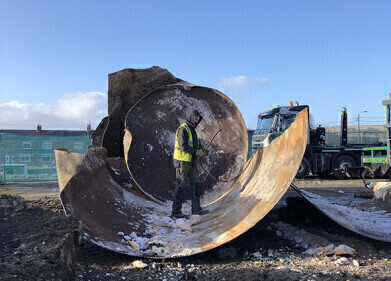Soil remediation
Soil remediation 'did not expose residents to toxins'
Nov 11 2013
Soil remediation work that occurred at a previously contaminated site in Mapua, New Zealand has not caused residents to be subjected to toxins, a new study has found. The University of Otago looked at the effects of the former Fruitgrowers Chemical Company site to ascertain whether the remediation works subjected nearby residents to toxins that could pose health risks.
It was previously thought that the soil remediation works on the site may have led to the exposure of dioxins and other toxic compounds, which would have posed a health risk for residents. However, after testing of the site, the university has announced that there was no evidence of this exposure.
Remediation works started at 2004 on the site and were completed in 2008. The site has been classed as New Zealand's "most contaminated" and previous testing suggested the release of harmful toxins and dioxins occurred during the four-year remediation process.
According to the recent study, residents of Mapua have not experienced elevated levels of exposure to toxins, nor has there been an increase in ill-health, which would likely have been the case if toxins were indeed released during the soil remediation works. Researchers analysed blood samples from Mapua residents and compared them to those from people living in a similar area.
No evidence was found that residents had been exposed to dioxins or chemical toxins from the site clean-up efforts. However, associate professor David McBride, principal investigator on the study, said the perceived exposure had had a damaging effect on social elements for those that worked or lived close to the site. Mr McBride said the perception of chemical exposure, even if no exposure was evident, had a negative and multidimensional effect upon psycho-social health and wellbeing.
The study also highlighted the need for community involvement in such projects as it was revealed that residents were not consulted about the soil remediation works at the site.
"One of our key findings was that toxic site remediation can be a contentious process, and community involvement should be subject to detailed planning, and consultation should be robust and continuous," said Mr McBride.
Events
Aug 24 2025 Stockholm, Sweden and online
Aug 27 2025 Busan, South Korea
Sep 02 2025 Mexico City, Mexico
Sep 02 2025 Mexico City, Mexico
Sep 09 2025 Moscow, Russia














